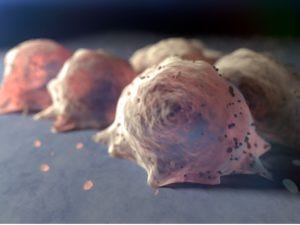Content Spotlight
Podcast: MilliporeSigma says education vital to creating unbreakable chain for sustainability
MilliporeSigma discusses the importance of people, education, and the benefits of embracing discomfort to bolster sustainability efforts.
June 8, 2020

Mesoblast says extra capacity will be needed to scale-up production of its GVHD candidate Ryoncil for use against COVID-19.
When Australia’s Mesoblast raised $90m last month it said most of the money would be used to scale up production of its graft versus host disease (GVHD) candidate Ryoncil (remestemcel-L).
CEO Silviu Itescu expanded on this last week, telling analysts the funds would be used to increase production of remestemcel-L in light of the coronavirus pandemic.

Image: iStock/Marcin Klapczynski
“The proceeds from this offering will be primarily used toward scale to manufacturing for remestemcel-L in the treatment of acute respiratory diseases – acute respiratory distress syndrome due to COVID-19 – as well as for the commercial launch of Ryoncil for acute GVHD.”
Itescu said current Mesoblast capacity is sufficient to support Ryoncil’s launch for acute GVHD but predicted an increase would be needed if the product is used to treat COVID-19.
“We do project an increase in capacity requirements as our pipeline matures, including for graft-versus-host disease label extensions for remestemcel-L and for COVID-19 ARDS.”
Mesoblast started looking at whether Ryoncil – which is made from mesenchymal stem cells – could be used as an immune modulatory agent in COVID-19 patients in March.
The manufacturing expansion will also help Mesoblast reduce its cost of goods sold (COGS) according to Itescu
“We will be moving to three dimensional bioreactors to reduce labor costs and improved manufacturing efficiencies. And these innovations will significantly reduce in the future our cost of goods.”
This was echoed by spokeswoman Julie Meldrum, who told us the 3D bioreactors “will be used to further optimize the manufacturing processes to increase yield and lower the cost of goods of our off-the-shelf cellular medicines.”
Mesoblast’s products are made through an agreement it has with Swiss CDMO Lonza. The deal grants exclusive access to Lonza’s cell therapy facilities in Singapore.
It also has an option for the construction of a facility by Lonza to meet Mesoblast’s long-term commercial objectives.
You May Also Like